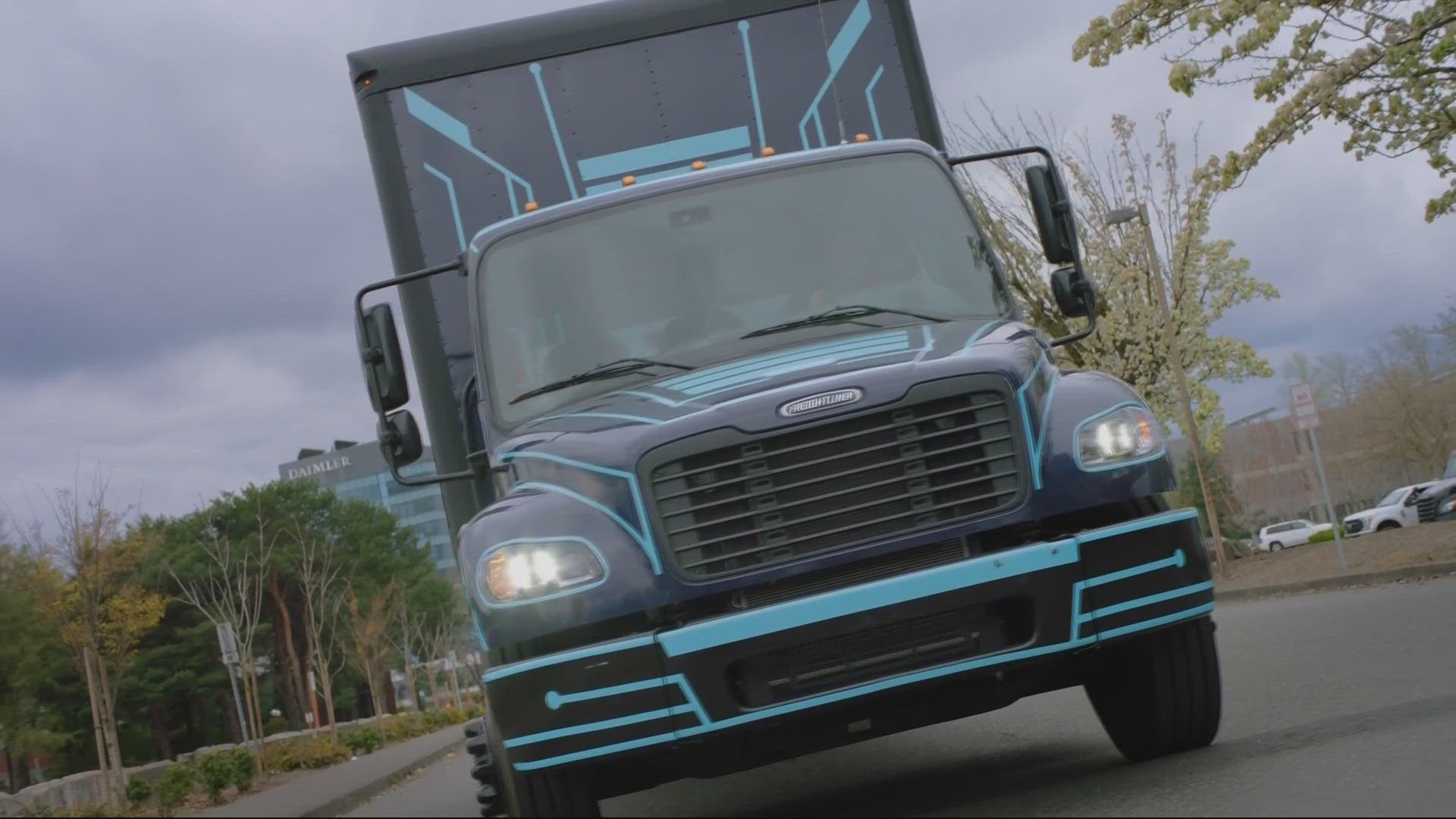PORTLAND, Oregon — Ever heard the saying "If you bought it, a truck brought it?" Almost three-quarters of the stuff we buy arrives in a truck, and most of those are powered by diesel, according to the US Department of Transportation.
Daimler Truck North America (DTNA), a pioneer in truck building, wants to lead a new race, offering exclusively fully carbon-neutral trucks by 2039.
"Trucks need to be available that can do the job, infrastructure needs to be reliable and ubiquitously available, and the cost of ownership needs to be acceptable,” said DTNA Vice President and Chief of E-Mobility Rakesh Aneja.
“By 2039, we want to exclusively offer carbon-neutral products in North America, in Europe and Japan,” he added.
He knows the challenges and makes clear the trifecta for transformation, noting "it takes a global village" — cooperation, even among competitors — to tackle this huge challenge.
DTNA is already building second generation all-electric semis and medium duty trucks here in Portland. The truck giant aims to speed up delivery and make them more affordable, integrating the whole design process under one roof. They're breaking ground on two new facilities on their Swan Island campus to make this happen.
Aneja said it's another vital piece to the puzzle “to have training opportunities with our dealer network, our service technicians, but also open to the broader community, partnering with universities, community colleges, schools as well. And in general, the entire stakeholder community that's interested in the transportation.”
Daimler’s holistic approach tackles everything from sourcing materials within the United States to answering that often-asked "What to do with used up batteries?"
Some of them may end up right here on Electric Island, said Aneja, “…to supplement the grid to reduce reliance on the grid. It can also help in micro-grid scenarios; it can help with off peak charging."
More electric vehicles (EVs) on the road mean more need for charging, and battery storage at charging sites like Electric Island become critical pieces to the EV transition.
And when a battery is ready for retirement, DTNA has a new recycling partner: Li-Cycle.
"(Li-cycle) uses an environmentally friendly liquid-based solution to recycle batteries with the target of extracting up to 95% of the critical battery grade materials that can be fed back into the supply chain,” said Aneja

